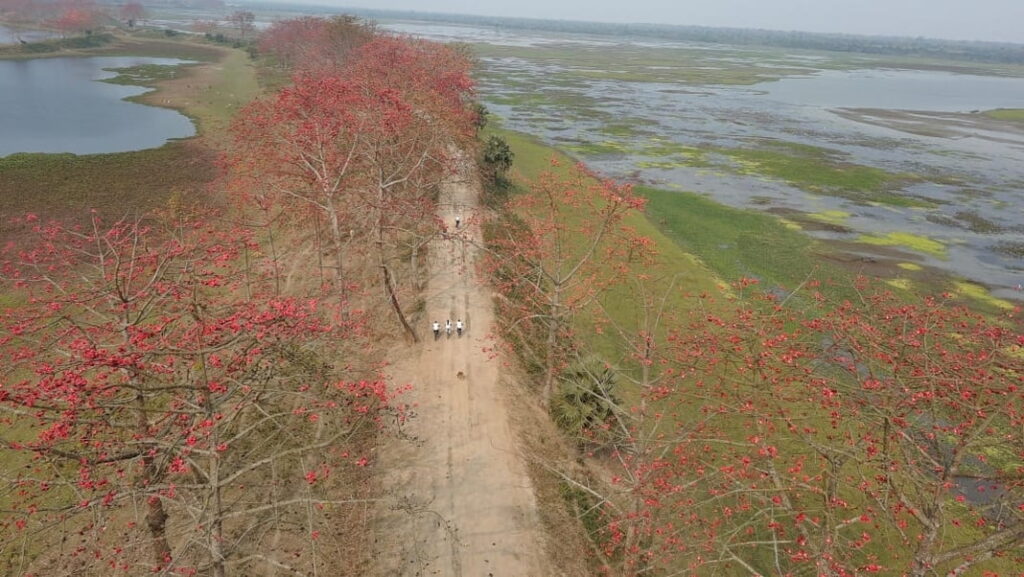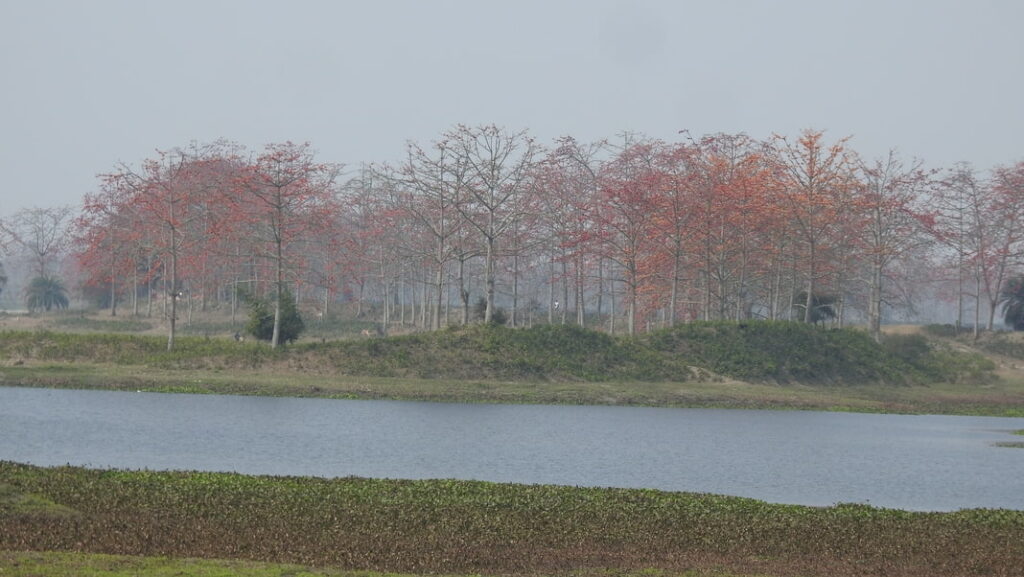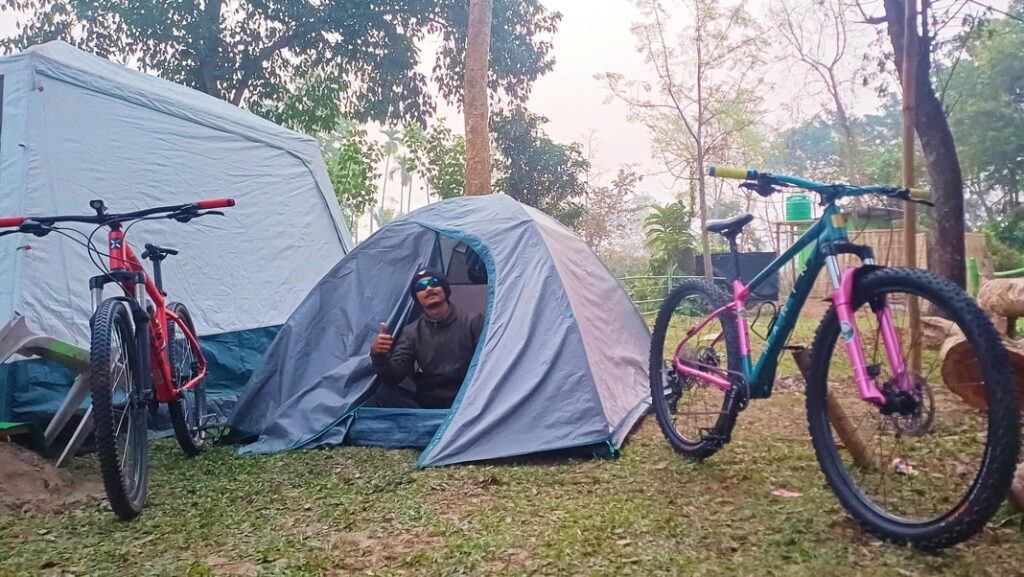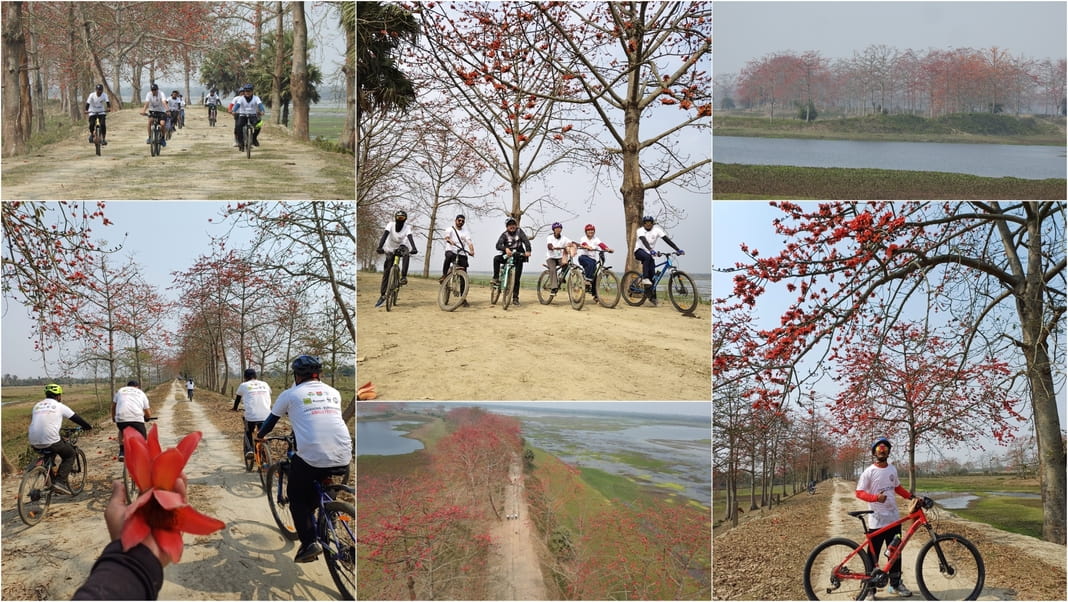Guwahati, Feb 17: Each year, as winter fades, the Bombax ceiba—or Red Silk Cotton Tree—erupts in a fiery bloom, painting the landscapes of Laokhowa and Burhachapori in brilliant shades of crimson. Under this mesmerizing canopy of scarlet, the 2nd Simolu Festival unfolded on February 15-16, 2025, drawing cycling enthusiasts, nature lovers, and culture seekers to experience the breathtaking beauty of Assam’s wetlands.
 The true heart of the festival lay in the cycling trails—a spectacular route that wound through ancient groves of red silk cotton trees, their towering branches forming a surreal tunnel of blossoms. As cyclists pedalled along the Simolu track, the soft carpet of fallen petals crunched under their wheels, and every gust of wind sent a fresh cascade of crimson drifting through the air. The sun’s golden light filtering through the blooms made the ride feel almost dreamlike as if travelling through a mythical forest bathed in red.
The true heart of the festival lay in the cycling trails—a spectacular route that wound through ancient groves of red silk cotton trees, their towering branches forming a surreal tunnel of blossoms. As cyclists pedalled along the Simolu track, the soft carpet of fallen petals crunched under their wheels, and every gust of wind sent a fresh cascade of crimson drifting through the air. The sun’s golden light filtering through the blooms made the ride feel almost dreamlike as if travelling through a mythical forest bathed in red.

With each turn, the landscape transformed—wetlands shimmering with the reflection of the fiery flowers, grasslands teeming with bird calls, and the occasional silhouette of wildlife moving through the undergrowth. The Simolu trees, known for shedding their leaves before blooming, stood bare yet ablaze, their skeletal branches holding up a sky of red blossoms.

As cyclists reached Bwisang-Na, the festival’s eco-resort hub, the evening unfolded in a celebration of culture and community. Traditional Assamese and indigenous delicacies were served, offering flavours drawn from the forests and rivers of the region. A cultural program featured local music, storytelling, and dance—many of which paid homage to the Shimul tree’s deep roots in folklore and daily life.
The second morning saw participants gear up for the Cyclothon near Donduwa Beel, where the landscape opened up to reveal stunning wetland vistas framed by yet more Simolu trees in full bloom. Here, the ride wasn’t just about endurance—it was about immersion. Cyclists paused to watch migratory birds gliding over the water, spotted exotic orchids nestled in the foliage, and listened to the rustling of the trees as the wind carried their petals to the earth.
A debriefing session after the ride highlighted the ecological significance of the Bombax ceiba—its role as a vital nectar source for pollinators, a nesting site for birds, and a symbol of renewal in local traditions.
Beyond the thrill of the ride, the Simolu Festival carried a deeper message—one of conservation, appreciation, and connection to nature. School students joined a nature walk, discovering how the red silk cotton trees and wetlands formed a delicate ecosystem worth protecting. Their journey ended with a certificate distribution ceremony, recognizing their role as future stewards of the environment.
As the last cyclists rode away under the crimson canopy, they carried with them not just memories of a scenic ride, but a renewed sense of wonder and responsibility for the natural world.
Also Read: Union Minister Annapurna Devi lauds Assam’s efforts
Also Watch
Find latest news from every corner of Northeast India at hubnetwork.in, your online source for breaking news, video coverage.
Also, Follow us on-
Twitter-twitter.com/nemediahub
Youtube channel- www.youtube.com/@NortheastMediaHub2020
Instagram- www.instagram.com/ne_media_hub
Download our app from playstore – Northeast Media Hub





